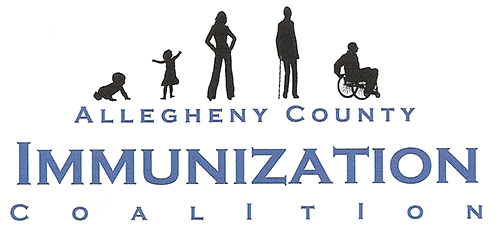Allegheny County Immunization Coalition
August is National Immunization Awareness Month. It’s a time to highlight the importance of vaccinations across the lifespan. The fact that there is a presidential candidate who is determinedly anti-vaccine reflects the reality that anti-vaccine beliefs are more common than they have ever been in the past sixty years. This trend is something that all health professionals need to address in a straightforward, but relaxed and engaging manner.
As a long-time public health nurse, I often discuss immunizations with community members in underserved areas. When I get the opportunity, I explain that measles, mumps, rubella, and varicella were childhood rites of passage for most baby boomers, me included. However, one Monday, when I was eight, I arrived at school to see an empty desk where my friend Carol sat. Our third-grade teacher told us that Carol had died from encephalitis from measles. We did not understand what this meant but were too stunned to ask. Unlike today, no counseling was offered to us and nothing more was said about Carol.

I worry about unvaccinated female children growing into adults and becoming pregnant. Without immunity from the vaccine or the actual disease, their developing fetus is extremely vulnerable should they be possibly exposed to rubella from a sick, most likely unvaccinated, child. The memory of rubella causing severe birth defects in the early stages of pregnancy has faded. We must remain vigilant in the advocacy of immunizations. We know that when the rate of immunizations dips to a certain level depending on the disease, we can no longer rely on herd immunity to protect the immunocompromised and the unimmunized.
Lastly, this immunization health observance month calls for reading A Good Time to be Born: How Science and Public Health Gave Children a Future by Perri Klass. Published in Oct. 2020 by Dr. Klass, who is a long-time pediatrician with the distinction of probably being the only physician in the nation with these particular joint faculty appointments – NYU’s medical school and their school of journalism. She is an extremely gifted writer and makes the history and drama behind the advances in medicine and public health compelling reading. Much of the book is devoted to the research, development and mass dispersal of vaccines. Before these immunizations were available, smallpox, diphtheria, pertussis, flu, and polio were especially devastating to infants and children. Even milder diseases such measles, mumps, rubella and varicella could be deadly. Vaccines have contributed in a major way to decreasing morbidity and mortality. That is something to celebrate.
